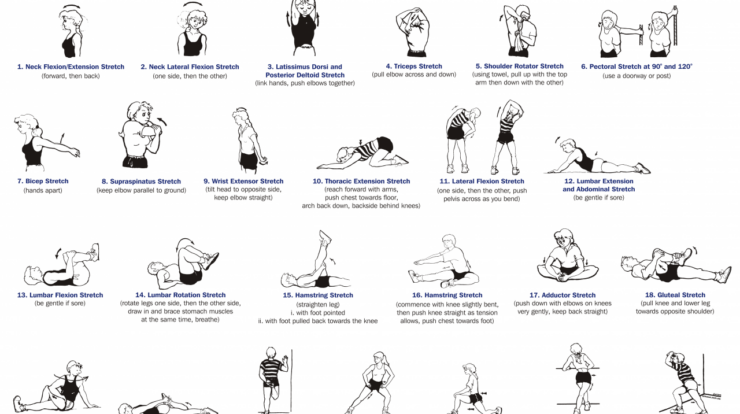
How to increase insurance agent productivity is a question that plagues insurance companies and agents alike. The insurance industry is constantly evolving, and agents need to be able to adapt to the changing landscape. In this article, we will discuss effective strategies for generating leads, optimizing the sales process, managing time and productivity, building strong customer relationships, and providing ongoing training and development.
By following the tips and advice in this article, insurance agents can increase their productivity and achieve greater success.
Lead Generation and Prospecting Strategies

To maximize productivity, insurance agents must employ effective lead generation and prospecting strategies. This involves identifying potential clients, qualifying prospects, and nurturing relationships.
Online Marketing
- Create valuable content that attracts potential clients, such as blog posts, articles, and videos.
- Utilize social media platforms to engage with prospects and generate leads.
- Run targeted online advertising campaigns to reach specific demographics and interests.
Networking and Referrals
- Attend industry events and meetups to connect with potential clients.
- Build relationships with other professionals, such as financial advisors and real estate agents, who can refer clients.
- Offer incentives to clients for referring new business.
Technology and Automation
- Use customer relationship management (CRM) software to manage leads and track progress.
- Automate lead generation tasks, such as email marketing and social media scheduling.
- Implement chatbots to provide instant responses to inquiries and qualify leads.
Sales Process Optimization
Optimizing the insurance sales process is crucial for increasing agent productivity. By identifying key steps and areas for improvement, insurance agents can streamline the sales cycle, reduce friction, and increase their conversion rates.
One key step in the sales process is lead generation and prospecting. This involves identifying potential customers and qualifying them to determine their needs and suitability for the insurance products being offered. Effective lead generation and prospecting strategies can help agents build a strong pipeline of qualified leads.
Lead Management and Qualification
Once leads have been generated, it is important to manage them effectively. This involves qualifying leads to determine their level of interest and readiness to purchase. Agents can use lead scoring systems to prioritize leads based on their potential value and likelihood of conversion.
- Establish clear criteria for lead qualification, such as industry, company size, and budget.
- Use lead scoring systems to assign points to leads based on their demographics, behavior, and engagement.
- Prioritize leads with high scores and focus on nurturing them through the sales cycle.
Sales Presentation and Proposal
The sales presentation is a critical step in the sales process. It provides agents with an opportunity to present their insurance products and solutions to potential customers. To maximize the effectiveness of the sales presentation, agents should:
- Tailor the presentation to the specific needs and interests of the customer.
- Use clear and concise language, avoiding jargon and technical terms.
- Provide specific examples and case studies to demonstrate the value of the insurance products.
Negotiation and Closing
Negotiation is an essential part of the sales process. Agents need to be able to negotiate effectively to reach an agreement that is beneficial to both parties. To be successful in negotiation, agents should:
- Understand the customer’s needs and objectives.
- Be prepared to compromise and find mutually acceptable solutions.
- Close the deal with confidence and professionalism.
Customer Relationship Management (CRM), How to increase insurance agent productivity
Customer relationship management (CRM) systems are powerful tools that can help insurance agents manage their sales pipelines and track customer interactions. CRM systems can help agents:
- Store and organize customer data, including contact information, purchase history, and communication preferences.
- Track the progress of sales opportunities and identify potential roadblocks.
- Automate tasks such as email marketing and lead nurturing.
Time Management and Productivity Tools: How To Increase Insurance Agent Productivity
Insurance agents often juggle multiple tasks and responsibilities, making time management crucial for their productivity. By optimizing time management and leveraging technology, agents can enhance their efficiency and achieve better results.
One key aspect of time management is setting priorities. Agents should identify the most important tasks and allocate their time accordingly. Prioritization can be based on urgency, importance, or deadlines.
To enhance insurance agent productivity, leveraging resources like Clark Mecconline can prove invaluable. This comprehensive platform empowers agents with tools, training, and support to streamline processes, automate tasks, and effectively manage their workload. By integrating Clark Mecconline into their operations, agents can maximize their efficiency, optimize their time, and ultimately increase their overall productivity.
Automation Tools
Technology offers numerous tools to automate tasks and improve efficiency. Customer relationship management (CRM) systems can automate tasks such as scheduling appointments, sending emails, and tracking client interactions. These systems can save agents time and allow them to focus on more complex tasks.
Time Management Techniques
Effective time management techniques can also enhance productivity. The Pomodoro Technique involves breaking down work into intervals of focused work followed by short breaks. This method helps maintain focus and prevent burnout.
To augment insurance agent productivity, industry leaders suggest a multi-pronged approach. Learn more about how to increase insurance agent productivity by leveraging technology, enhancing communication, and streamlining processes.
Another technique is the Eisenhower Matrix, which categorizes tasks based on urgency and importance. Agents can prioritize tasks in the “Urgent and Important” quadrant and delegate or eliminate tasks in the “Not Urgent and Not Important” quadrant.
Insurance agents play a crucial role in the industry, and increasing their productivity is essential for businesses to thrive. Various strategies can be implemented to boost their efficiency, such as providing comprehensive training, leveraging technology, and setting clear performance metrics.
By adopting these measures, insurance agents can optimize their workflow, enhance customer satisfaction, and ultimately drive business growth. Learn more about proven techniques to increase insurance agent productivity and maximize their impact within the industry.
Managing Distractions
Managing distractions is essential for maintaining productivity. Agents should create a dedicated workspace free from distractions. They can also use noise-canceling headphones or white noise to minimize interruptions.
Insurance agents play a crucial role in the financial well-being of individuals and businesses. Enhancing their productivity is essential for optimizing sales, customer satisfaction, and overall business success. To achieve this, agents should leverage proven strategies such as adopting digital tools, enhancing communication skills, and building strong relationships with clients.
By implementing these tactics, insurance agents can significantly increase their productivity, leading to improved performance and enhanced client outcomes. For a comprehensive guide on how to increase insurance agent productivity, visit this resource .
Social media and email notifications can be major distractions. Agents should set specific times to check these channels and avoid checking them during focused work periods.
Customer Relationship Building
Building strong customer relationships is paramount for insurance agents. Positive relationships foster loyalty, increase customer retention, and drive referrals. By prioritizing customer satisfaction, agents can differentiate themselves in a competitive market.
Nurturing Relationships
Nurturing customer relationships requires consistent communication, personalized interactions, and proactive follow-ups. Regular touchpoints, such as check-in calls, emails, and social media engagement, demonstrate that the agent cares about their clients’ well-being and insurance needs.
Providing Excellent Customer Service
Exceptional customer service is the foundation of strong relationships. Agents should be responsive, empathetic, and knowledgeable. By resolving inquiries promptly, addressing concerns effectively, and going the extra mile, agents build trust and establish themselves as reliable partners.
Building Trust
Trust is the cornerstone of customer relationships. Agents can build trust by being transparent, honest, and ethical. They should provide clear explanations of policies, avoid jargon, and always act in the best interests of their clients. By fostering trust, agents create a strong foundation for long-term partnerships.
The topic of how to increase insurance agent productivity has been widely discussed, with experts suggesting various strategies. From implementing customer relationship management (CRM) systems to providing ongoing training, there are many ways to boost productivity. For more insights, visit how to increase insurance agent productivity to explore proven techniques and best practices that can help insurance agents achieve optimal performance.
Personalized Communication and Marketing Campaigns
Personalized communication and marketing campaigns enhance customer engagement and strengthen relationships. By tailoring messages to individual customer needs, interests, and preferences, agents can deliver relevant and valuable information. This can include targeted emails, tailored social media content, and customized newsletters.
Training and Development
Insurance agents face a rapidly evolving industry landscape, with constant changes in regulations, products, and customer expectations. To stay competitive and provide exceptional service, ongoing training and development is crucial.
Effective Training Methods and Resources
Effective training programs utilize a variety of methods to cater to different learning styles and preferences. These include:
- Classroom training:Facilitated by industry experts, provides structured learning and opportunities for hands-on practice.
- Online courses:Offer flexibility and self-paced learning, allowing agents to access training materials anytime, anywhere.
- Webinars:Live or recorded online sessions provide real-time knowledge sharing and Q&A opportunities.
- Mentoring and coaching:Pairing experienced agents with newer ones provides personalized guidance and support.
- Conferences and industry events:Attendees gain insights from thought leaders, network with peers, and learn about industry trends.
Creating a Comprehensive Training Program
A comprehensive training program should address the following:
- Needs assessment:Identifying knowledge and skill gaps through regular evaluations and feedback.
- Curriculum development:Creating training modules that cover industry regulations, product knowledge, sales techniques, and customer service skills.
- Delivery methods:Selecting appropriate training methods based on the learning objectives and agent preferences.
- Evaluation and feedback:Assessing the effectiveness of training programs through regular evaluations and feedback from participants.
- Continuous improvement:Regularly reviewing and updating training programs to ensure they remain relevant and effective.
Final Wrap-Up

In conclusion, increasing insurance agent productivity is essential for the success of any insurance company. By implementing the strategies Artikeld in this article, agents can generate more leads, close more sales, and build stronger customer relationships. With the right tools and techniques, insurance agents can achieve their full potential and help their companies thrive.
Popular Questions
What are some effective lead generation strategies for insurance agents?
Effective lead generation strategies for insurance agents include networking, cold calling, social media marketing, and content marketing.
How can insurance agents optimize their sales process?
Insurance agents can optimize their sales process by streamlining the sales cycle, using a CRM system, and providing excellent customer service.
What are some tips for insurance agents to manage their time and productivity?
Insurance agents can manage their time and productivity by setting priorities, using technology to automate tasks, and delegating tasks to others.
Why is it important for insurance agents to build strong customer relationships?
It is important for insurance agents to build strong customer relationships because it leads to increased customer loyalty, repeat business, and referrals.
What are some best practices for training and developing insurance agents?
Best practices for training and developing insurance agents include providing ongoing training, using a variety of training methods, and providing opportunities for agents to practice their skills.





